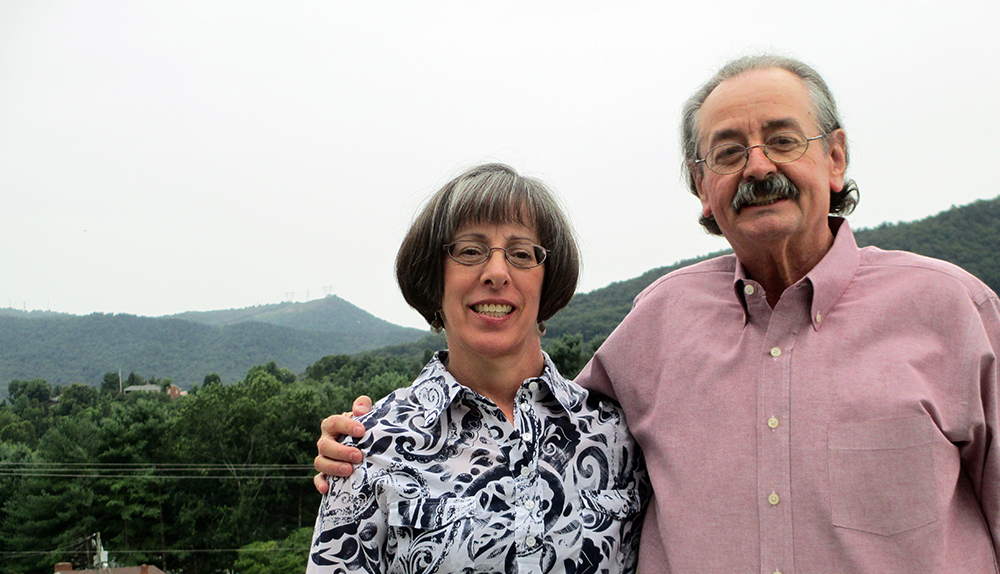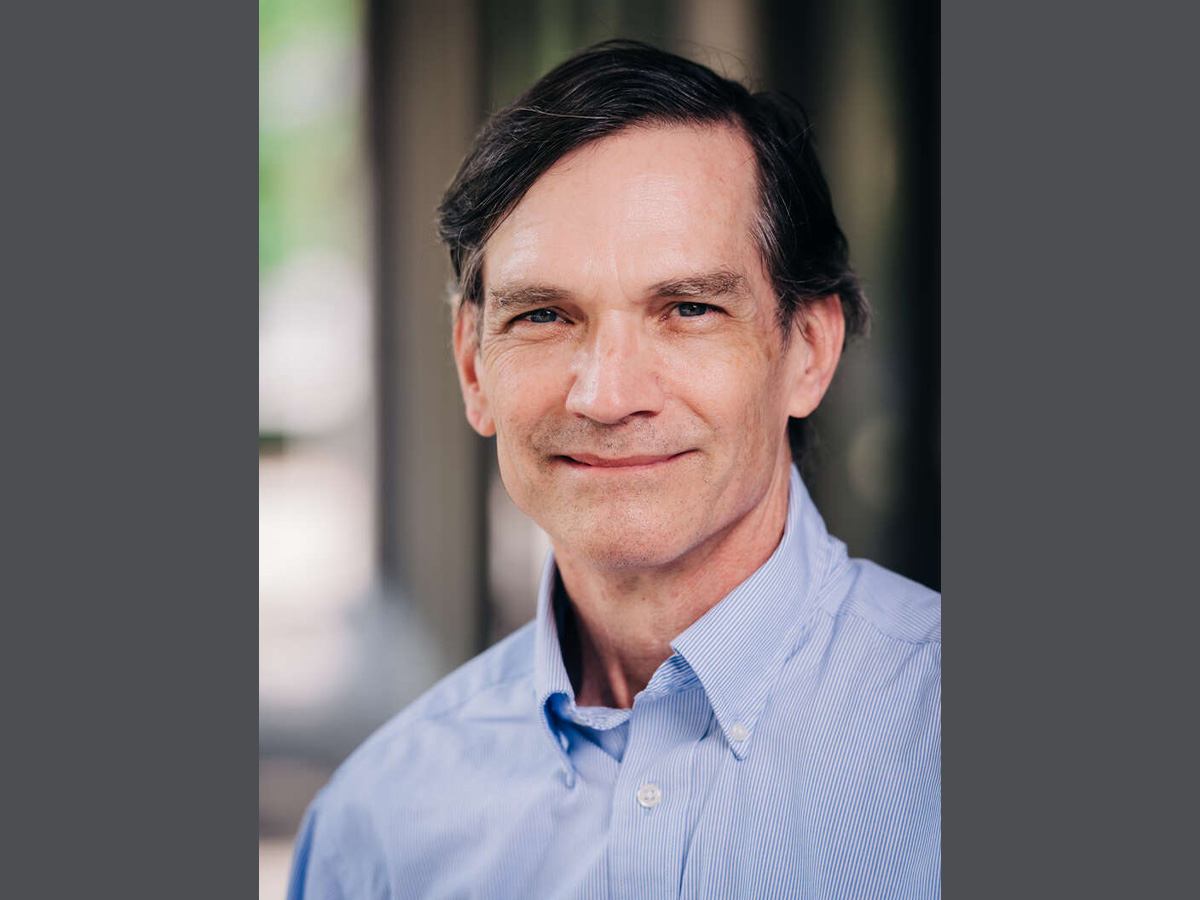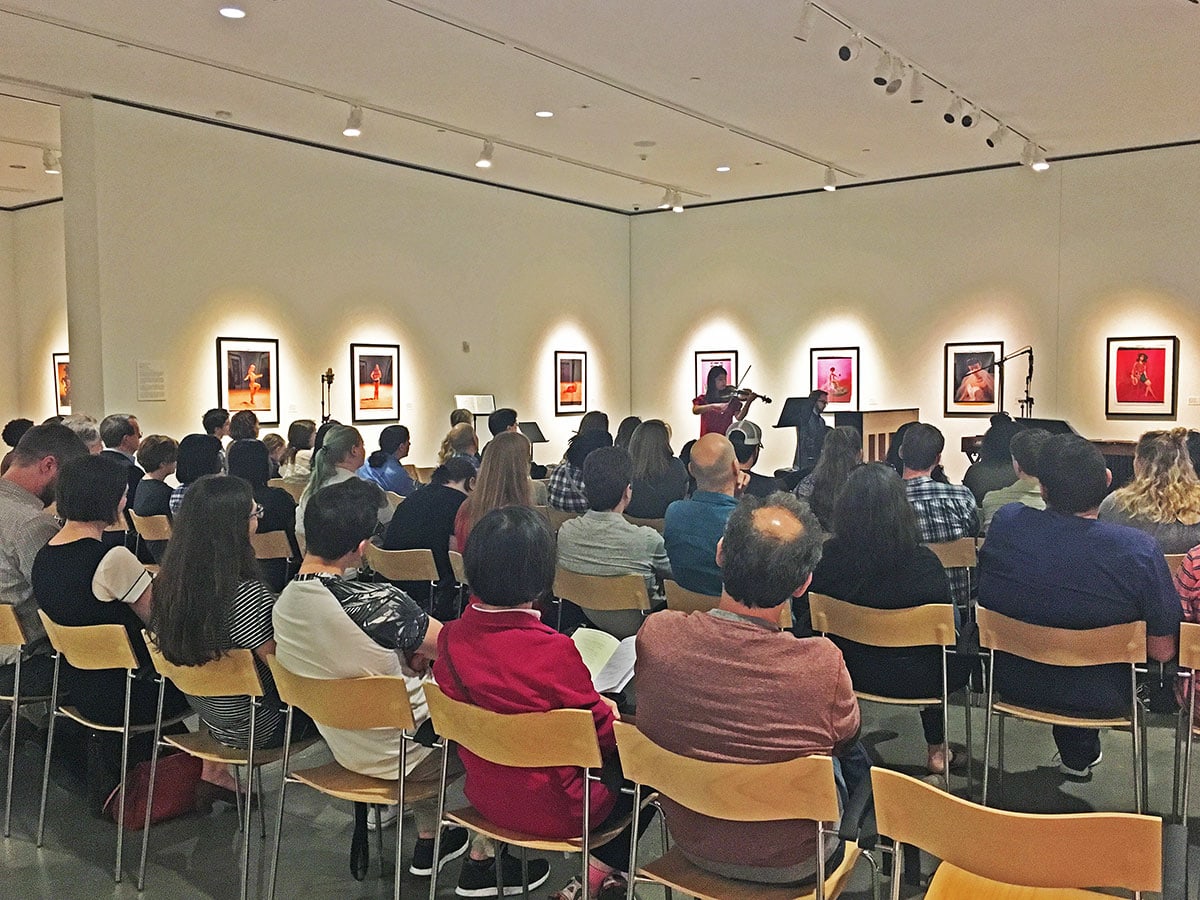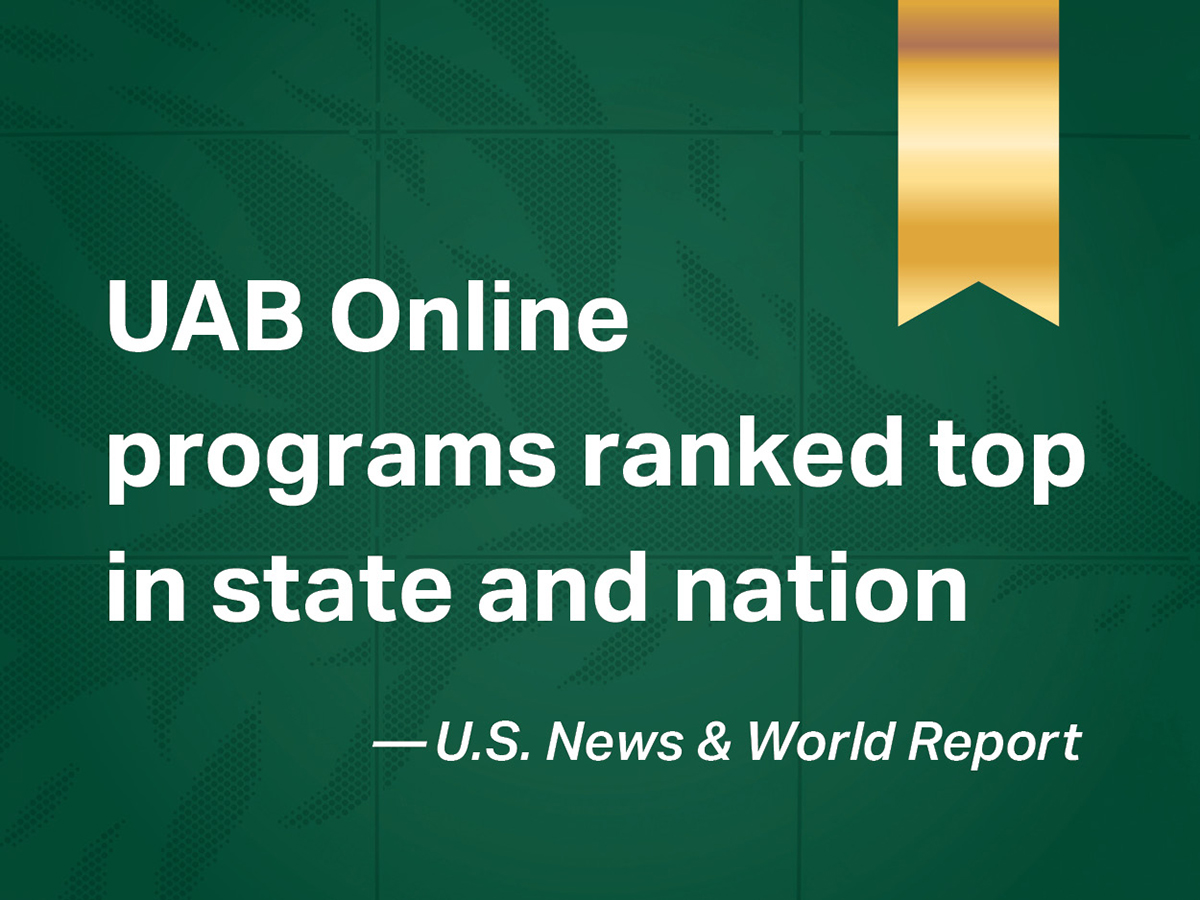 Jeanne Welch never really saw herself as college material.
Jeanne Welch never really saw herself as college material.
Growing up in an Air Force family, she moved a lot growing up. While she learned to be outgoing and adaptable, she never expected to go to college. But a desire to help others, and an interest in mental health technology, helped her find her way to UAB.
WORK FIRST, THEN SCHOOL
After graduating from high school, Welch first pursued a general studies degree and completed a year of coursework at a community college. Then she completed some additional mental health training, always with the drive to serve those in need. ”I was interested in helping people achieve their life goals,” she says.
She was hired as a houseparent with what was then UAB's transitional home for individuals leaving state mental hospitals, a job she says was a good fit.” I was working in my area of interest and my area of education,” she says. ”But I still wasn't thinking about college.”
But a conversation with a work acquaintance changed her thinking and helped her connect the dots. ”She was a Bachelor of Social Work student at UAB, and she pointed out to me that what I was already doing in my job was social work,” Welch says. ”So I decided to learn more about the program and see if I could strengthen my education and training.”
A CRITICAL CONVERSATION
Welch made an appointment with Dr. Norman Eggleston, then-chair of the Department of Social Work, and his advice proved to be transformative.
”Originally my idea was a two-year degree,” Welch says, ”but Dr. Eggleston convinced me that a four-year degree would give me more independence and flexibility.”
Welch had a firm timeline in mind: She had to graduate in the spring of 1980 while still working fulltime. But with the help of Dr. Eggleston and Welch's faculty advisor Dr. Gail Wykle, she was able to find a way. ”I mapped out the whole plan based on what classes were taught in the daytime or at night,” she says.
With a plan in place and a deadline looming, Welch jumped into her classes with energy and enthusiasm. ”Being able to stop by and meet with faculty after classes was so helpful,” Welch says. ”The investment they made in me was significant and meaningful; they would ask me how things were going, and they wanted to know not just in my classes, but in my job, too.”
"Knowing that you know how to help someone and how to provide services to them is so rewarding."
NEXT STEPS
With Dr. Eggleston's encouragement, Welch once again expanded her educational expectations and decided to apply for graduate school. ”I thought I was done at the four-year degree, but Dr. Eggleston started planting seeds that I could and should continue my education and training,” she says. ”I still have the recommendation letters from Dr. Eggleston, Tom Kemp, and Gail Wykle. They could see the potential in me, even when I didn't see it in myself.”
With the department fully behind her, Welch applied and was accepted to the graduate social work program at Virginia Commonwealth University. ”It was a one-year advanced-standing program,” she says. ”Most students had to have good grades and work experience. But when I graduated with my BSW, I couldn't [walk at commencement] because I had less than 24 hours to get to graduate school!”
A MEANINGFUL CAREER
After graduating in June 1981, Welch started her first job as a social worker. After a year working with developmentally disabled adults, she landed at one of Virginia's Community Services Boards, which provides community mental health therapy to outpatients. ”That was the beginning of a 15-year career with the Service Boards,” Welch says. ”As a licensed clinical social worker, I gained both clinical and administrative experience as we counseled patients dealing with depression, sexual abuse, relationship problems, and more.”
She admits that while her role was often emotionally and psychologically challenging, she was able to stave off burnout by relying on her training and focusing on the positive outcomes. ”Knowing that you know how to help someone and how to provide services to them is so rewarding,” she says. ”And seeing them progress as a result of your help is so gratifying and satisfying. You know you're making a difference.
”You have to know which challenges are worth investing in and which ones to leave alone,” she adds. ”You have to know what you can control. You can focus on what's tough, or you can decide to go into that room with that person and offer the best you have, knowing that this will pass. And it always did.”
Welch, who just recently retired, spent the last 11 years of her career as a clinical social worker at the Salem VA Medical Center in Salem, Virginia. ”Being raised in an Air Force family, I knew the sacrifices that the veterans and their families had made. That was something I brought to the table. Veterans like being treated by people who can relate to them—they like that feeling of kinship. I felt like my life had come full circle.”
MAKE A PLANNED GIFT
Jeanne Welch and Jay Rule endowed their scholarship by way of a planned gift—a very flexible and popular choice for donors. There are many ways to make a planned gift, including legacy gifts (wills, trusts, real estate, and more); gifts that generate income (charitable gift annuities); stock transfers; and other options. To learn more about how you can contribute from your estate, contact:
Kimberley S. Coppock, J.D.
Director of Development
Office of Planned Giving
kcoppock@uab.edu
(205) 975-5970
STILL HELPING OTHERS
Welch found herself thinking of UAB and Dr. Eggleston when she and her husband Jay Rule, a mechanical engineer, were preparing a will several years ago. ”We were thinking a lot about what has impacted our lives the most, and how to give back. And I immediately thought of UAB.”
Welch says that her connection to Dr. Eggleston went beyond his academic and professional advice. ”He was the only person I knew in Birmingham who was from Virginia, like I was,” she says. ”And as I learned a little about his life history—how he was raised in foster care and how social workers had such a positive impact on him—it motivated me to continue my social work training.
”Dr. Eggleston told me I could achieve anything I put my mind to,” she continues. ”I didn't enroll at UAB with that in my mind, but that gave me that confidence. So when Jay and I were ready to make a gift—and I couldn't do any of this without Jay—I had the opportunity to finish funding the scholarship that had already been established in Dr. Eggleston's name.”
Welch says in hindsight, she can see how events worked in her favor. “If I hadn't met the social work student, I would've never considered a social work degree,” she says. ”If I hadn't met Dr. Eggleston, I wouldn't have pursued my undergraduate and graduate degrees. And if not for those conversations, I wouldn't be in a position to give back today. I also received some financial assistance when I was a student. I want to do what I can to help today's students discover their own untapped, unrealized potential.”


